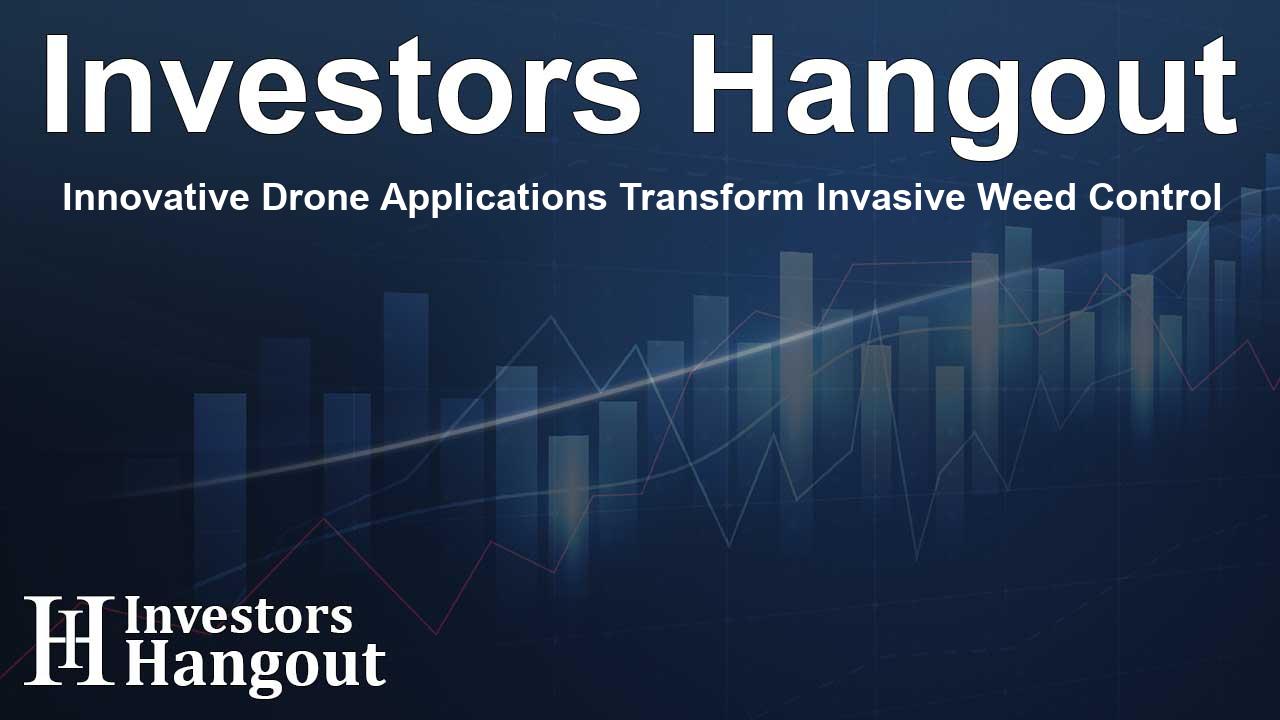Innovative Drone Applications Transform Invasive Weed Control

Drone Technology in Ecosystem Management
A recent research study has demonstrated the exceptional potential of drones in combating invasive weed species, particularly in wetland habitats. The study reveals that these unmanned aerial vehicles can effectively facilitate ecological recovery by applying herbicides directly to target species with remarkable precision.
Research Findings on Herbicide Application
According to findings published in a peer-reviewed journal, a single application of targeted herbicide from a Remotely Piloted Aircraft System (RPAS) resulted in a staggering 99% reduction in live common reed stems. This effectiveness indicates a significant breakthrough in managing invasive plants, as the controlled application not only maximizes herbicide impact but also minimizes damage to surrounding flora.
The Pioneers Behind the Research
This innovative study was led by Rebecca Rooney, Ph.D., an associate professor of biology. Dr. Rooney emphasizes the efficiency of RPAS technology, stating that it matches or even surpasses traditional methods of herbicide application via helicopters or backpack sprayers. The detailed research enhances existing knowledge and introduces a new paradigm in invasive species management.
Challenges in Weed Management
Conventional methods of controlling invasive common reed often present substantial challenges. Limited access to areas requiring treatment makes ground spraying could harm local wildlife or desirable plants. Drones offer a safer alternative that not only mitigates ecological disturbance but also provides a more accessible means for land managers to address these invasive species.
The Advantages of Drone Applications
One of the standout features of RPAS is their ability to operate at lower flight altitudes and narrower spray widths compared to helicopters. This precision drastically reduces the potential for herbicide drift, ensuring that native vegetation around the treated areas remains unscathed. Maintaining the integrity of these ecosystems is critical, particularly in sensitive habitats.
Initial Effects on Biodiversity
While initial observations indicated a temporary decrease in plant diversity immediately following drone applications, researchers found that many native species began to recolonize treated areas within a year. This suggests that with careful management and execution, drone technology can contribute to a healthier restoration of ecological balance.
Future Directions for Research and Application
The positive outcomes from the study point toward a future where RPAS can be widely utilized for invasive species management. Future investigations should aim to further explore long-term recovery dynamics of native plants following herbicide treatments and evaluate the overall effectiveness of drone applications in minimizing harm to these vital ecosystems.
Frequently Asked Questions
What is the purpose of using drones in herbicide applications?
Drones are used to apply herbicides effectively and precisely to combat invasive species like common reed while minimizing ecological damage.
How effective are drone herbicide applications compared to traditional methods?
Drone applications have shown to achieve over 99% effectiveness in reducing invasive plant species, often surpassing conventional methods.
What are the advantages of using Remotely Piloted Aircraft Systems?
RPAS allows for lower flight operations and narrower spray widths, which reduces off-target impacts and herbicide drift.
Are there any effects on native plant diversity after drone applications?
While there may be a short-term drop in diversity, some native species have been observed to recolonize treated areas within a year.
What areas will benefit from future drone technology applications?
Future applications of drone technology will benefit various ecosystems, particularly wetlands that are highly sensitive to invasive species management practices.
About The Author
Contact Evelyn Baker privately here. Or send an email with ATTN: Evelyn Baker as the subject to contact@investorshangout.com.
About Investors Hangout
Investors Hangout is a leading online stock forum for financial discussion and learning, offering a wide range of free tools and resources. It draws in traders of all levels, who exchange market knowledge, investigate trading tactics, and keep an eye on industry developments in real time. Featuring financial articles, stock message boards, quotes, charts, company profiles, and live news updates. Through cooperative learning and a wealth of informational resources, it helps users from novices creating their first portfolios to experts honing their techniques. Join Investors Hangout today: https://investorshangout.com/
The content of this article is based on factual, publicly available information and does not represent legal, financial, or investment advice. Investors Hangout does not offer financial advice, and the author is not a licensed financial advisor. Consult a qualified advisor before making any financial or investment decisions based on this article. This article should not be considered advice to purchase, sell, or hold any securities or other investments. If any of the material provided here is inaccurate, please contact us for corrections.
